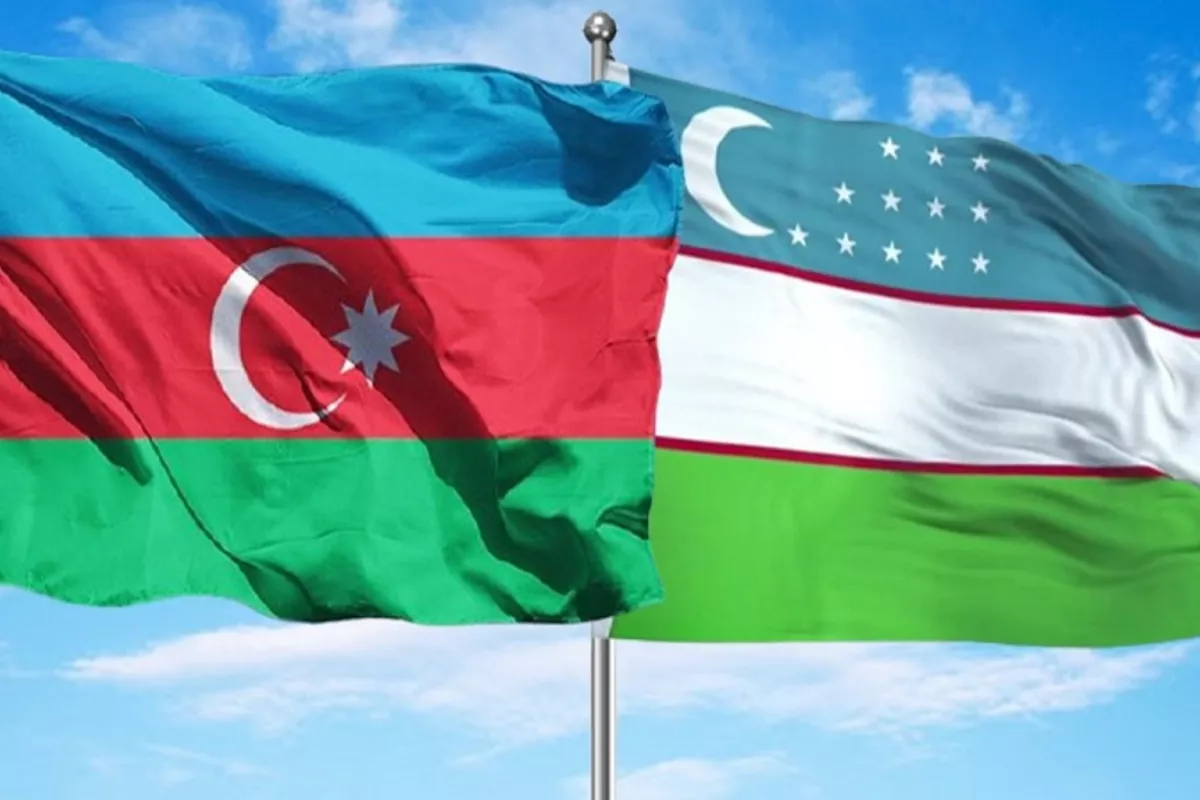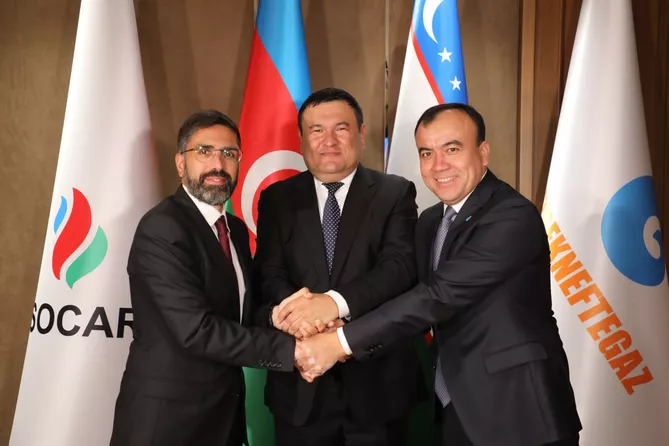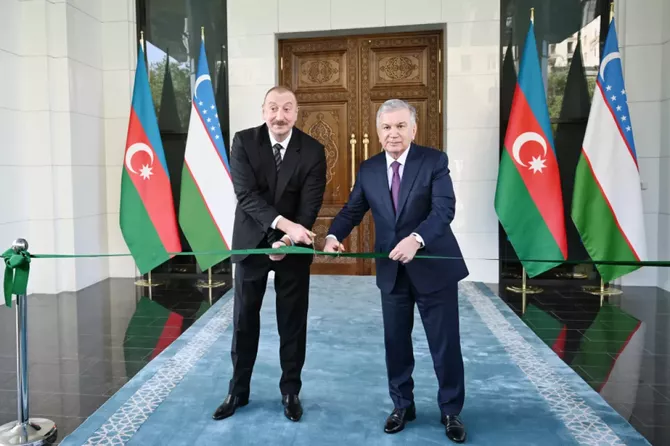
At the end of last week, the Ministry of Energy of Uzbekistan, SOCAR, and the joint-stock company Uzbekneftegaz signed a Production Sharing Agreement (PSA) to conduct geological exploration, with a view to subsequent hydrocarbon extraction in investment blocks located in the Ustyurt oil and gas region. The agreement envisions 3D seismic surveys over an area of at least 1,000 square kilometers, followed by the drilling of an exploration well. If commercially viable hydrocarbon reserves are discovered, the parties will move on to field development and production.
SOCAR President Rovshan Najaf stated that the agreement reflects a long-term strategy for energy sector development in Central Asia and the Caspian region. He emphasized that this cooperation will make a meaningful contribution to Uzbekistan’s energy security and infrastructure growth. For his part, Uzbekistan’s Minister of Energy Jurabek Mirzamakhmudov described the partnership with SOCAR as a strategic step toward diversifying investment sources and integrating global best practices. He also noted that the Ustyurt region has significant untapped potential, and the project will become an “important driver of technological advancement and economic growth.”
The PSA grants the investor exclusive rights to carry out oil and gas operations, including exploration, development, and production. The investor will recover its expenses from a portion of the extracted resources, with the remaining profit-based production to be distributed between the parties in agreed proportions.

It is worth recalling that the strategic partnership between Uzbekneftegaz and SOCAR began in 2016, when a cooperation agreement was signed that included the training of Uzbek specialists at SOCAR. At the same time, Uzbekneftegaz was expected to participate in offshore projects in Azerbaijan. In 2017, the two companies agreed to implement joint oil and gas projects not only in Azerbaijan and Uzbekistan but also in third countries. In 2018, together with BP Exploration, they signed a memorandum on joint geological exploration of several investment blocks. After BP exited the project in 2021, the two sides reviewed new cooperation opportunities, culminating in another oil and gas cooperation agreement signed in 2024.
The latest stage in their collaboration was formalized during the official visit of President of Uzbekistan Shavkat Mirziyoyev to Azerbaijan in July 2025, which resulted in the decision to jointly carry out geological exploration on the Ustyurt Plateau.
The signed agreement further confirms the special nature of Azerbaijani-Uzbek relations, a sentiment echoed during President Mirziyoyev’s recent visit to Baku. As the president noted, “Never before in our history have our relations been at such a high level.” This was demonstrated by a series of bilateral events: the first Inter-Parliamentary Forum was successfully held in Khiva, Uzbekistan; meanwhile, Baku hosted sessions of the Intergovernmental Commission and the Regional Forum. Earlier, the city of Andijan hosted the first Rectors’ Forum of the two countries, during which over 60 agreements were signed-highlighting the growing importance of cultural and humanitarian ties between Uzbekistan and Azerbaijan. One such cultural milestone was the Azerbaijani ensemble "Shirvan" winning the Grand Prix at the Bakhshi Festival in Khiva.
During President Mirziyoyev’s visit to Baku, a new building of the Uzbek Embassy was inaugurated, and a symbolic groundbreaking ceremony for the "Uzbekistan" park was held in the prestigious “Ag Sheher” (White City) district-further illustrating the deepening friendship and mutual respect between the two nations.

Economic cooperation is also gaining momentum: mutual trade turnover has increased by 25%, and the investment portfolio has expanded to $4 billion. The volume of Uzbek cargo transported through the Middle Corridor has also grown by 25%. The number of joint ventures has reached nearly 300. One of the most promising joint initiatives is a project to export electricity to Europe.
President of Azerbaijan Ilham Aliyev has emphasized that the two countries share deep historical, cultural, and linguistic roots, forming a solid foundation for the flourishing Azerbaijani-Uzbek brotherhood.
Industrial and investment cooperation is expanding as well. The Ministry of Innovation, Industry, and Trade (MIIT) of Uzbekistan has partnered with several Azerbaijani construction companies to launch the production of building materials and residential housing projects in Namangan. Cooperation is also advancing in the production of dairy products, household chemicals, and high-voltage cables. Notably, Azerbaijani company Agalarov Development signed an agreement with MIIT to develop a resort area in the Bostanlyk district of Tashkent Region-a project expected to significantly contribute to tourism infrastructure and job creation.
In this context, the recently signed agreement on SOCAR’s geological exploration activities in the Ustyurt region clearly fits within the unique and steadily strengthening understanding between Tashkent and Baku. This relationship is growing not only on a bilateral level but also within the framework of the Organization of Turkic States and other international platforms.
Share on social media